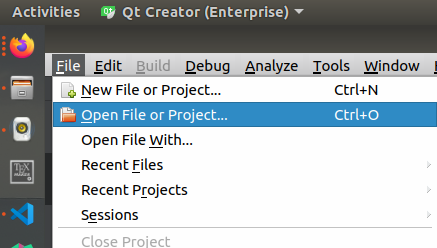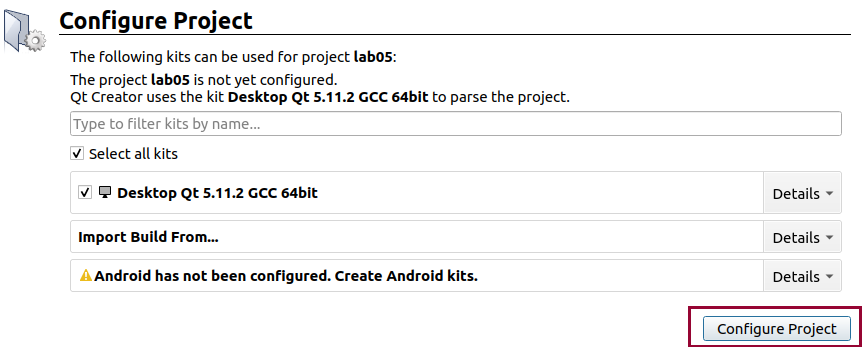Lab 5: Doubly linked lists, classes, templates
- Initialization
- Application 1: remove duplicates from doubly linked list
- Application 2: print COVID19 statistics (group by country)
Initialization
Dowloading files using wget
You need to download the initial source files. wget program can help you in general to download files from the internet. In case you don’t have it in your system you can install it using:
sudo apt install wget
Download source files
Before downloading files, go to your lab repository and make lab05 directory then go to the newly created folder:
mkdir lab05 # Execute in repo folder
cd lab05
There are eight files we need to download. However, we can first download a single text file that includes the links for the other 8 files.
wget https://raw.githubusercontent.com/sbme-tutorials/sbme-tutorials.github.io/master/2020/data-structures/snippets/lab05/linkedlists/download.txt
Now to download the eight files in a single command:
wget -i download.txt
Now if you list the files in the current directory you should see the following output:
asem@asem-pc:~/GP/sbe201-2020-labs-A-Alaa/lab05$ ls CMakeLists.txt DLL2.hpp download.txt main_dll2.cpp main_std.cpp DLL1.hpp DLL3.hpp main_dll1.cpp main_dll3.cpp
From the QtCreator, open the current directory as a project by selecting CMakeLists.txt file.



Application 1: remove duplicates from doubly linked list
A) Procedural Paradigm
Requirement 1: implementation of doubly linked list of integers
Complete the implementation of the following functions in the DLL1.hpp file:
bool isEmpty( DLL &list )void pushFront( DLL &list, int data )void pushBack( DLL &list, int data )void popNode( DLL &list, Node *node )void popFront( DLL &list )void popBack( DLL &list )int getAt( DLL &list, int index )void clear( DLL &list )void print( DLL &l )int size( DLL &list )
Requirement 2: implementation of duplicates removal algorithm
In the main_dll1.cpp, implement a function removeDuplicates that deletes duplicate elements in the linked list you just made in DLL1.hpp.
#include <iostream>
#include <random>
#include "DLL1.hpp"
void removeDuplicates( DLL &l )
{}
int main()
{
std::mt19937 sampler; // random number sampler
std::uniform_int_distribution<int> udist(0,500); // distribution
DLL l{nullptr}; // Empty list
for( int i = 0; i < 500 ; ++i) // Populate with 500 random integers
pushBack( l , udist(sampler));
removeDuplicates( l );
}
B) Object-oriented Paradigm
Requirement 1: from free functions to member functions
In this part, you will work on DLL2.hpp. You are required to copy your functions from DLL1.hpp and transform the free functions into member functions inside the struct DLL.
struct Node
{
int data;
Node *next;
Node *prev;
};
struct DLL
{
// Data members
Node *front;
// Member functions (methods)
bool isEmpty(){ /** Logic **/}
void pushFront( int data ){ /** Logic **/}
void pushBack( int data ){ /** Logic **/}
void popNode( Node *node ){ /** Logic **/}
void popFront(){ /** Logic **/}
void popBack(){ /** Logic **/}
int getAt( int index ){ /** Logic **/}
void clear(){ /** Logic **/}
void print(){ /** Logic **/}
int size(){ /** Logic **/}
// Constructors
DLL() // default constructor
{
front = nullptr;
}
};
Requirement 2: adapt the program to work with the new paradigm
Now you will work in a new source file main_dll2.cpp which will use the linked list in DLL2.hpp as an object with methods.
#include <iostream>
#include <random>
#include "DLL2.hpp"
void removeDuplicates( DLL &l )
{}
int main()
{
std::mt19937 sampler; // random number sampler
std::uniform_int_distribution<int> udist(0,500); // distribution
DLL l; // Empty list
for( int i = 0; i < 500 ; ++i) // Populate with 500 random integers
pushBack( l , udist(sampler)); // CHANGE THIS
removeDuplicates( l );
}
C) Templates
Requirement 1: from concrete class to template class
In this part, you will work on DLL3.hpp. You are required to copy your lines from DLL2.hpp and transform the doubly linked list of integers into generic doubly linked list.
// T: template parameter. It will be the type of element data.
template< typename T >
struct Node
{
T data; // Generic type
Node *next;
Node *prev;
};
// T: template parameter. It will be the type of element data.
template< typename T >
struct DLL
{
// Data members
Node< T > *front;
// Member functions (methods)
bool isEmpty(){ /** Logic **/}
void pushFront( T data ){ /** Logic **/}
void pushBack( T data ){ /** Logic **/}
void popNode( Node< T > *node ){ /** Logic **/}
void popFront(){ /** Logic **/}
void popBack(){ /** Logic **/}
T getAt( int index ){ /** Logic **/}
void clear(){ /** Logic **/}
void print(){ /** Logic **/}
int size(){ /** Logic **/}
// Constructors
DLL() // default constructor
{
front = nullptr;
}
};
Requirement 2: adapt the program to work with the template class
Now you will work in a new source file main_dll3.cpp which will use the linked list in DLL3.hpp as a template class (and will instantiate an integer doubly linked list from it).
#include <iostream>
#include <random>
#include "DLL2.hpp"
void removeDuplicates( DLL<int> &l )
{}
int main()
{
std::mt19937 sampler; // random number sampler
std::uniform_int_distribution<int> udist(0,500); // distribution
DLL<int> l; // Empty list
for( int i = 0; i < 500 ; ++i) // Populate with 500 random integers
pushBack( l , udist(sampler)); // CHANGE THIS
removeDuplicates( l );
}
Application 2: print COVID19 statistics (group by country)
The following folder csse_covid_19_daily_reports contains reports on COVID figures around the globe cities that are updated daily.
For example, the file 04-15-2020.csv includes the COVID figures updated until 15/April/2020.
Each of these files are formatted as tables using the standard comma-separated-values (csv) format. You can view the raw csv file in this link 04-15-2020.csv.
The first line of any csv file is called the header line that defines the columns names. In that file, you will see the first line as:
FIPS,Admin2,Province_State,Country_Region,Last_Update,Lat,Long_,Confirmed,Deaths,Recovered,Active,Combined_Key
It means that the following lines will consist of 12 values separated by commas and they represent in order: the FIPS (the county code), Admin2 (adminstration), ..etc.
In the table, you will see some countries like US, China, Canada, United Kingdom, France are distributed by cities, and other countries are reported as a single row representing the overall figures in that country.
You can directly download these files to your machine using wget.
wget https://raw.githubusercontent.com/CSSEGISandData/COVID-19/master/csse_covid_19_data/csse_covid_19_daily_reports/04-15-2020.csv
After downloading, you can open the 04-15-2020.csv using the Excel program (or alike).
Instead of downloading as a file, you can directly print the file contents to your terminal:
wget -q -O - https://raw.githubusercontent.com/CSSEGISandData/COVID-19/master/csse_covid_19_data/csse_covid_19_daily_reports/04-15-2020.csv
Requirement 1 (done): merge by country using std::list
We are interested to print a table that shows: the confirmed cases, deaths, recoveries, active cases for each country. So if there are many rows representing different cities for a single country, we will sum the figures in a single row representing the whole country.
In the main_std.cpp file, use a linked list to load the whole table data, then merge the rows of single countries summing their figures. Use the std::list from the C++ STL.
To run your program, we can redirect the standard output of the following command as a standard input to your compiled program
The standard output here printed in the terminal:
wget -q -O - https://raw.githubusercontent.com/CSSEGISandData/COVID-19/master/csse_covid_19_data/csse_covid_19_daily_reports/04-15-2020.csv
This command redirects the standard output as a standard input to your program std_ll (after compiled):
wget -q -O - https://raw.githubusercontent.com/CSSEGISandData/COVID-19/master/csse_covid_19_data/csse_covid_19_daily_reports/04-15-2020.csv | ./std_ll
You should see the following output:
asem@asem-home:$ wget -q -O - https://raw.githubusercontent.com/CSSEGISandData/COVID-19/master/csse_covid_19_data/csse_covid_19_daily_reports/04-15-2020.csv | ./std_ll +----------------------------------+-----------+--------+-----------+--------+ | Country | Confirmed | Deaths | Recovered | Active | +----------------------------------+-----------+--------+-----------+--------+ | US | 636350 | 28326 | 52096 | 555928 | +----------------------------------+-----------+--------+-----------+--------+ | Canada | 28209 | 1007 | 8966 | 18236 | +----------------------------------+-----------+--------+-----------+--------+ | United Kingdom | 99483 | 12894 | 368 | 86221 | +----------------------------------+-----------+--------+-----------+--------+ | China | 83356 | 3346 | 78311 | 1699 | +----------------------------------+-----------+--------+-----------+--------+ | Netherlands | 28316 | 3145 | 304 | 24867 | +----------------------------------+-----------+--------+-----------+--------+ | Australia | 6440 | 63 | 2186 | 4191 | +----------------------------------+-----------+--------+-----------+--------+ | Denmark | 6876 | 309 | 2925 | 3642 | +----------------------------------+-----------+--------+-----------+--------+ | France | 134582 | 17188 | 31470 | 85924 | +----------------------------------+-----------+--------+-----------+--------+
(The output is pruned)
Requirement 2: replace std::list with your implemented linked list
Replace the usage of std::list with an instantiated DLL<CovidItem> from the template class DLL in DLL3.hpp.